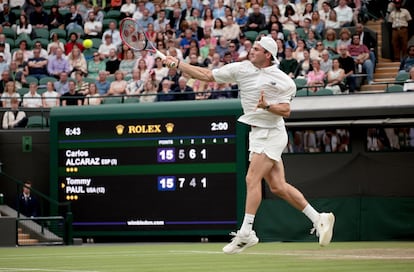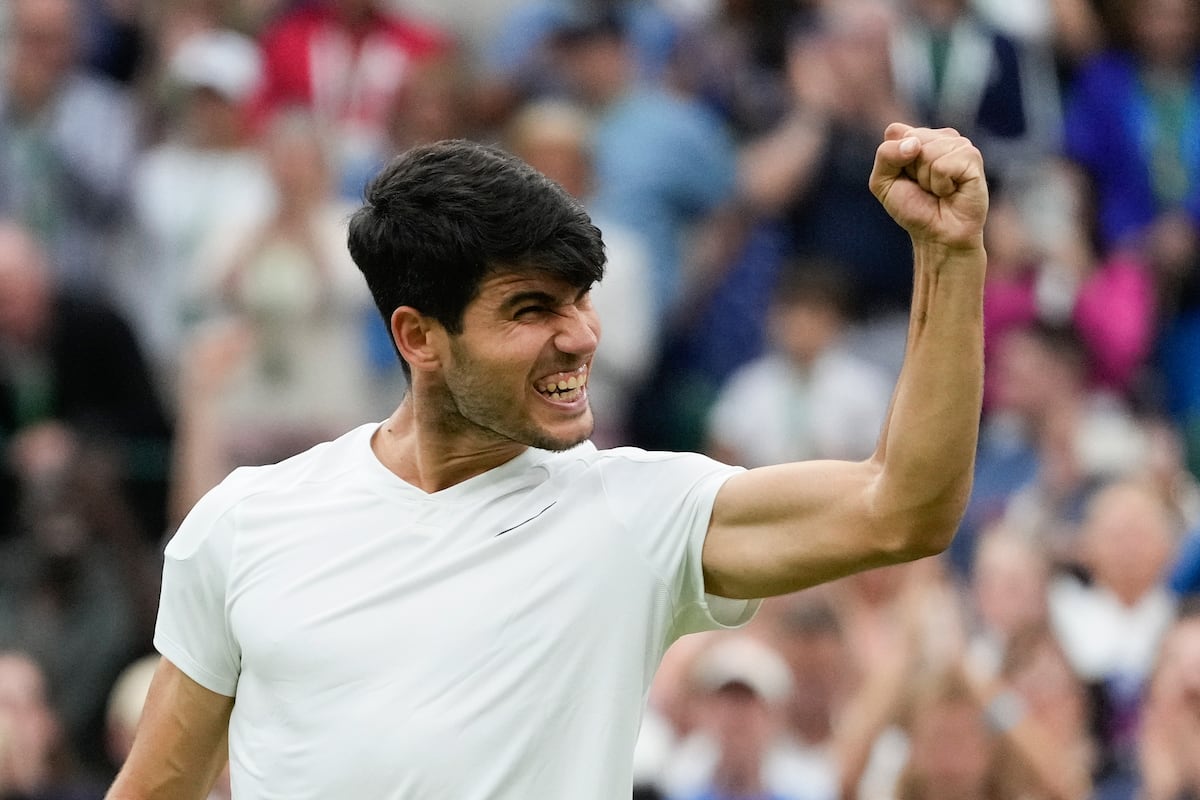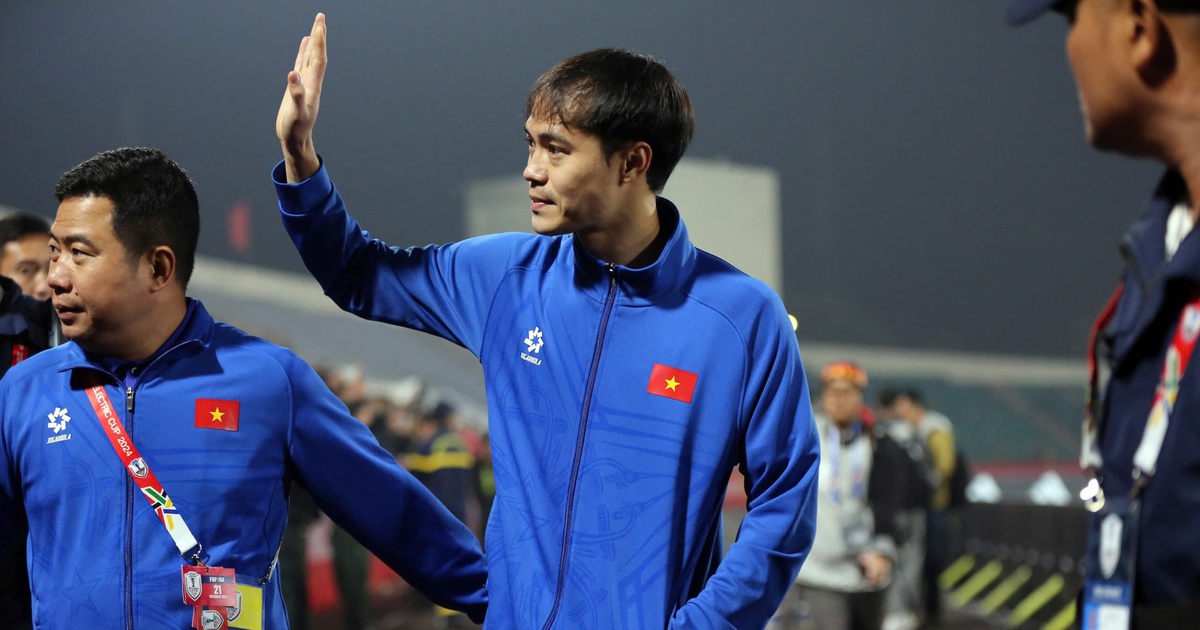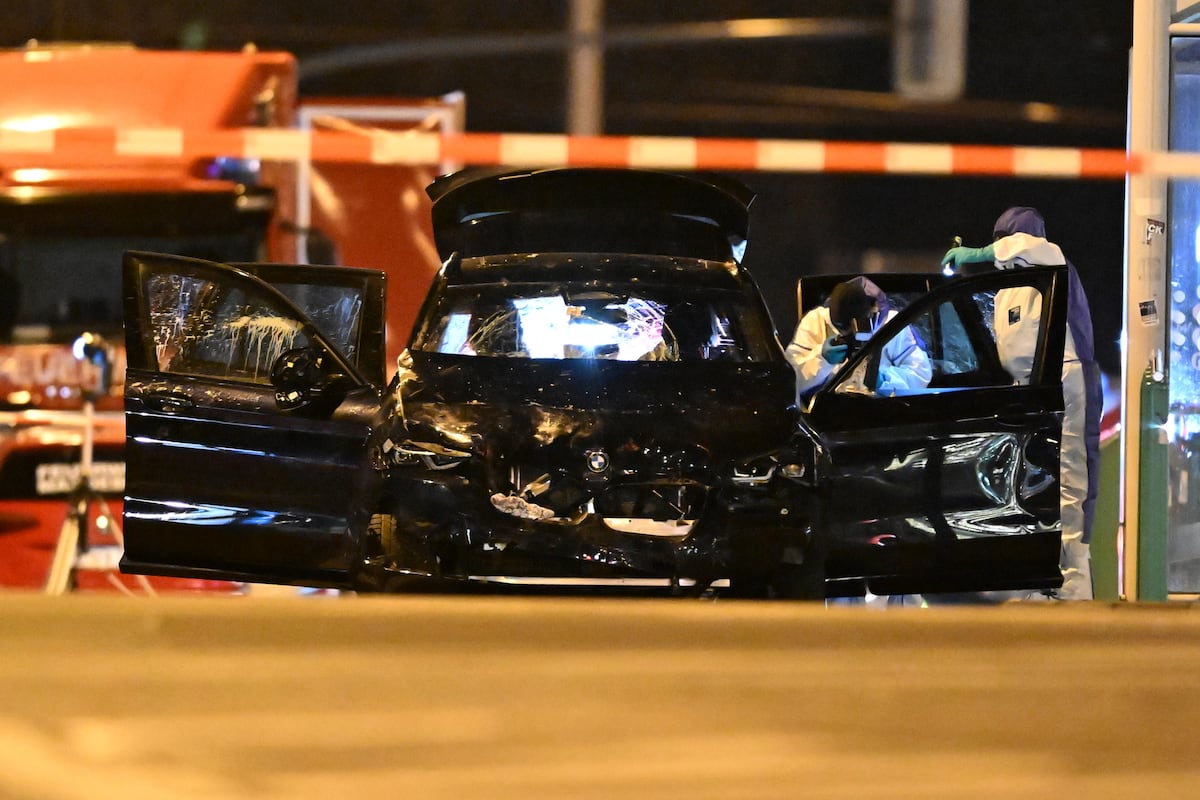Carlos Alcaraz has his sixth Grand Slam semi-final under his belt, the second consecutive in London after his victory over Tommy Paul (5-7 6-4, 6-2 and 6-2, in 3h 11m), and the Murcian, Carlitos, proclaims The Irreducible: “I always believe in myself.” He does not lack faith, imagination or solutions, and hence this last demolition, very laborious, very worked and very well deserved, which requires both hammer and head to avoid going astray. In the end, the American, 13th in the world, recent champion in Queens, falls and the poster for the penultimate round of Wimbledon matches the name of the Spaniard with that of the Russian Daniil Medvedev, superior to the Italian Jannik Sinner (6-7 (9), 6-4, 7-6 (4), 2-6 and 6-3). In other words, back to the recent past; again the one in Moscow, same scale. Just like a year ago. On the way, a whole exercise of restraint, first, and then collapse.
“It was very difficult, at times, as if it were a clay court match. I had to be very strong mentally,” he explains. “In difficult moments I always believe that I can come back, that I am capable of turning things around. In the Grand Slams the matches are longer and there is more time to recover,” he continues before rushing to the locker room to complete the routine and then go to watch Spain’s match against France in the European Championship. Before, in action, the Murcia native had hit 36 winners and his opponent had made 51 unforced errors. More than 50 exchanges above five shots and almost 40 above nine. This Paul was tough to beat, with whom he had already crossed paths four times (3-2 now in his favour) and who has always forced him to take an extra point. This time too.
Because he is not a guy who has a very shaky hand or who shrinks easily. The American charges and charges from one side to the other, with violence and precision, finding the angles and not giving Alcaraz any respite, who navigates the first set in troubled waters all the time, but with reliability. In the face of the onslaught, he is calm. He knows very well how his rival behaves, a farm boy, determined, always going his own way and without losing focus, and the Murcian understands that it is not going to be a straight line trip in any way, but rather a very sinuous, Homeric one, as shown by a first act that lasts for over an hour, sprinkled with alternatives and blows from one side and the other. The sound, how expressive in this tennis thing.
The strings creak loudly during an afternoon of high intensity, fire and a lot of rock n’ roll; metallic snaps, hits (notes) from the Clash, The Who, the Stones. To each his own. This is London and music counts for a lot, accompanying the pulse from start to finish. Two electric guitars sound. One breaks it, and the other replies with even more decibels. High-level impacts, powerful, incisive, with a lot of intention in all the shots. The approach is reciprocal, there is no speculation. The hand-to-hand combat is declared. On the sixth option Alcaraz scratches the break, but the adversary returns the blow. break (in white) and he pushes harder and harder, convinced, without losing his edge. The sixth game lasts 20 minutes and the champion resists, but at the key moment, a string breaks in the plucking.
All the letters
Two unclean hits, translated into two errors, and the deep passage that the American finds with his two-handed backhand, compass in hand, decide the set. And the anger is great. It was not his turn, not now, laments the Spaniard. He has missed too many trains. But this time there has been no gap, but mere imprecision; it could be, there is little to reproach himself for. This Wimbledon is covered in water and it shows the last ramps of making amends, of correcting, of knowing how to react when appropriate. Of suffering. His father (traditionally very restrained) screams from the start. box. So far from dwelling on the bad aftertaste left by the end, Alcaraz doubles down on his artillery and leaves the back line more frequently, and emerges strengthened from the subsequent exchange of blows. Regardless of the score, his style, he says, is non-negotiable.

He also interprets that sometimes it is not necessary to apply so much force, but rather to lower the speedometer and cut, to make the person in front think a little more. To reduce a gear, so often key. So simple, so difficult. In this way, he begins to do more damage and grows. He also takes out the hammer on the serve and Paul’s game begins to get dirty, less orderly, more erratic now, too much pace for too long; you know, the oppressive yoke of Alcaraz. A torture: “I force him to play at 100% all the time.” And so, of course, anyone gets out of control. The American, even though imperturbable, is losing steam and position, and the Spaniard begins to obtain benefits from the erosion: one more ball, and another, and another in. Decision, chosen style. “Let’s go!” And indeed, bingo.
The lady in the elegant beige hat nods, looking like a Londoner: How good is this boy. Alcaraz is, pure demolition. Cards of all colors. If he does not impose himself with blows, with that Tyson style The game that catches the eye so well, whether it is through guerrilla fighting (remember the previous matches and some in Paris) or simply through simple crushing. There is no superior tennis player today, not even the ill-matched Sinner, already eliminated, nor the hegemonic Novak Djokovic, who seeks nourishment in disaffection and has lost control. Another story is what happens from now on. But there he is, riding on the back of this dynamic that belongs only to his kind, the trade of winning and winning and winning. There is no debate in the third set, Paul definitely gives in. There is nothing to do. And Carlitos seals it by dancing: semi-finals again, delicious delicacy.
You can follow Morning Express Sports onFacebook andXor sign up here to receiveour weekly newsletter.









